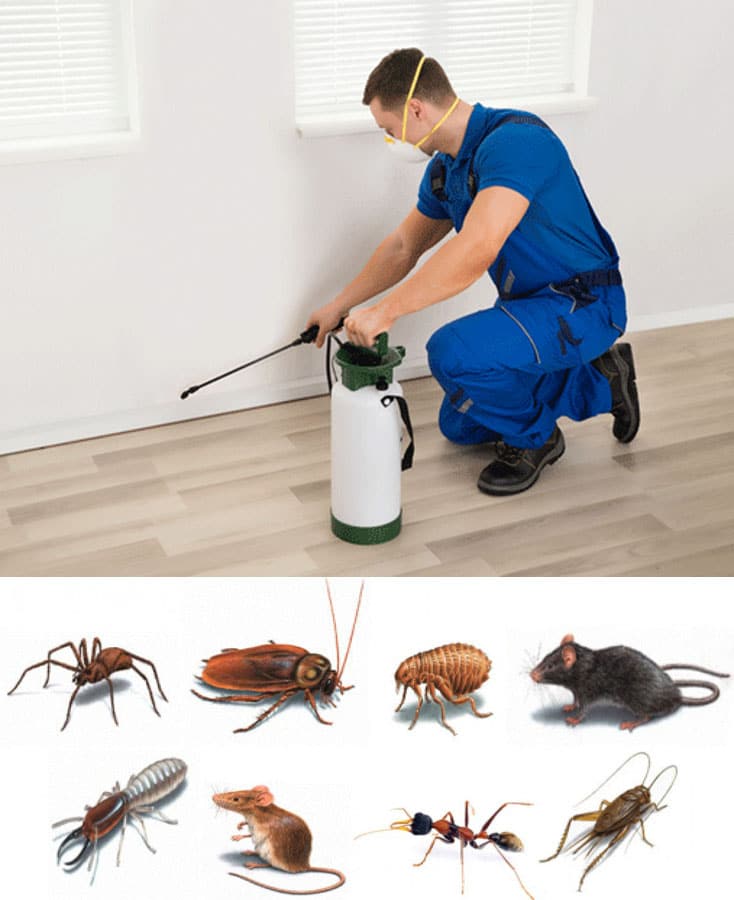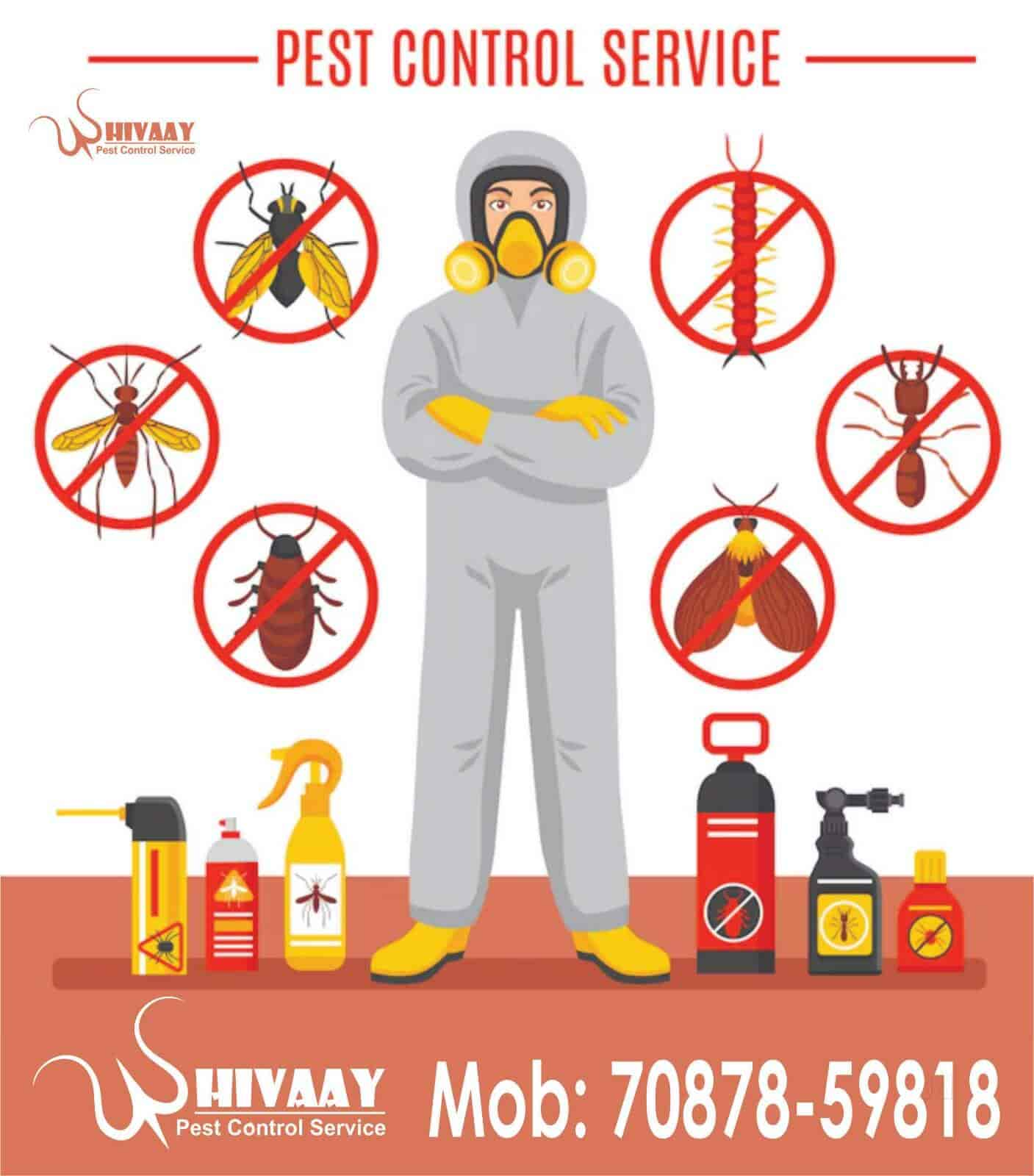Safe and Reliable Pest Control for Lasting Protection
Effective bug management calls for a diverse strategy that balances eco-friendly integrity with the requirement for reliable insect reductions. The nuances of these techniques might not be right away clear, motivating a closer assessment of the techniques that can lead to sustainable bug control end results.
Understanding Bug Control Approaches
Insect control includes a selection of methods targeted at handling and getting rid of undesirable pests and rats that can threaten both health and wellness and building. Understanding these techniques is vital for reliable pest management.
The main classifications of parasite control approaches include mechanical, biological, and chemical methods. Mechanical techniques include physical barriers and traps to avoid parasite access and capture undesirable varieties. Using screens on windows or using sticky catches can dramatically lower parasite populaces without presenting hazardous compounds - exterminator coquitlam.

Chemical pest control is frequently one of the most acknowledged approach, utilizing chemicals to get rid of pests. These chemicals can be reliable however must be utilized with caution to stay clear of unfavorable results on non-target types and the environment.
Advantages of Eco-Friendly Solutions
Exactly how can green solutions transform insect control methods? The adoption of environment-friendly parasite control approaches supplies numerous benefits, significantly enhancing the effectiveness and security of insect administration.

An additional benefit is the positive influence on neighborhood biodiversity. Green options are developed to target particular pests while maintaining valuable insects and wildlife, promoting a balanced ecological community. This technique straightens with the expanding consumer need for lasting practices, boosting the track record of insect control service providers.
Integrated Pest Monitoring Techniques
The implementation of green services normally results in the fostering of Integrated Bug Management (IPM) methods, which further boost insect control efficiency. IPM is a holistic strategy that combines numerous tactics to handle pest populations while decreasing environmental influence. This strategy highlights using biological, cultural, mechanical, and chemical controls, making sure a lasting and well balanced method of bug monitoring.
One fundamental element of IPM is the thorough evaluation of parasite activity and environmental conditions. By checking pest populations and determining their life process, practitioners can execute targeted interventions that interfere with the parasite's habitat or lifecycle, decreasing dependence on chemical pesticides. In addition, social techniques such as crop rotation and habitat control can substantially lessen pest establishment and reproduction.
Another vital part is using organic control representatives, such as beneficial insects or microorganisms, which can naturally suppress insect populations. When chemical applications are required, IPM prioritizes making use of low-risk pesticides and applies them selectively, reducing exposure to non-target organisms and humans.
Incorporating IPM techniques not only improves pest control effectiveness but additionally advertises a more secure ecological community, straightening with the expanding demand for sustainable practices in pest monitoring.
Safe Practices for Homeowners
Recognizing the relevance of risk-free methods in insect control can empower homeowners to properly take care of bug problems while safeguarding their health and the setting. Carrying out non-toxic methods and preventive measures is essential in minimizing direct exposure to damaging chemicals.
Home owners ought to initially evaluate their setting for conditions that draw in pests, such as standing water, food, and mess waste. On a regular basis cleaning and sealing access points can discourage parasites from invading the home. Using all-natural deterrents, such as important oils or diatomaceous planet, can give effective options to chemical pesticides.
When chemical therapies are required, home owners should select items that are especially labeled as risk-free for property usage. It is crucial to comply with application standards diligently to avoid overexposure. Making use of targeted therapies in locations where parasites are identified, rather than covering splashing, can significantly reduce chemical use.
Lastly, maintaining open communication with insect control experts is important. House owners must ask regarding the security of products used and request environment-friendly choices whenever possible. By adopting these safe practices, property owners can create a healthier living setting while effectively taking care of pest issues.

Tips for Long-Term Defense
Developing a parasite monitoring method that highlights lasting defense can substantially boost the performance of the secure techniques formerly gone over. To achieve this, homeowners need to apply routine assessments of their residential property, focusing on hidden locations such as attics, cellars, and crawl areas. Early detection of parasite activity is crucial in protecting against invasions from taking hold.
Additionally, keeping a clean setting is important. This consists of appropriate food storage space, immediately cleaning spills, and regularly dealing with rubbish. These practices reduce attractants that draw parasites into the home. Moreover, sealing entrance factors, such as fractures around doors and windows, can properly block prospective parasite gain access to.
Landscaping ought to likewise be taken into consideration; keeping plants trimmed and preserving a distance in between plant life and the home minimizes hiding areas for bugs. Making use of all-natural deterrents, such as important oils or diatomaceous planet, can additionally inhibit infestations without resorting to severe chemicals.
Finally, working together with a professional insect control service for regular examinations can supply an added layer of protection. These specialists can supply customized referrals and progressed therapies, making certain you can try these out that your home continues to be shielded versus parasites in the lengthy term.
Verdict
To conclude, risk-free and trustworthy bug control needs a diverse approach that emphasizes eco-friendly approaches and incorporated bug administration. By implementing natural deterrents, performing routine evaluations, and maintaining correct hygiene, homeowner can considerably reduce parasite populations while safeguarding beneficial pests and the atmosphere. Collaboration with specialist insect control solutions improves the effectiveness of these approaches, making sure tailored remedies that supply lasting defense and comfort versus future invasions.
Reliable bug management needs a multifaceted technique that balances eco-friendly integrity with the demand for effective bug suppression. The fostering of eco-friendly bug control methods uses numerous benefits, dramatically enhancing the performance and safety of bug monitoring.The implementation of green solutions naturally leads to the fostering of Integrated Pest Administration (IPM) approaches, which further improve parasite control efficacy. exterminator coquitlam. By keeping track of insect populaces and recognizing their life cycles, specialists can apply targeted treatments that interrupt the bug's habitat or lifecycle, minimizing dependence on chemical pesticides.In verdict, dependable and risk-free bug control calls for a complex approach that emphasizes environmentally friendly techniques and incorporated parasite monitoring